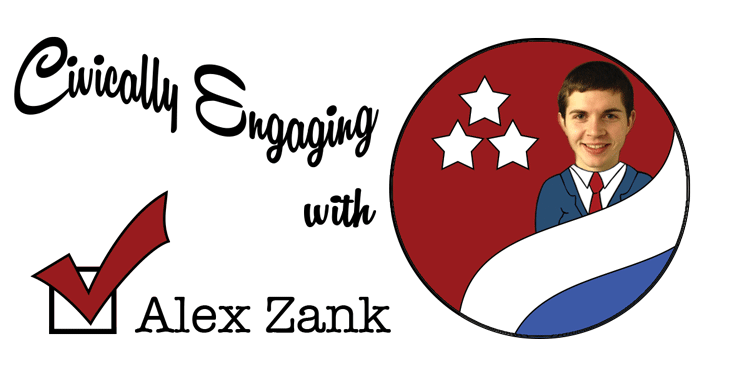Civically Engaging with Alex Zank
I loved reading Thoreau in high school, and I still admire his works today. In his essay “Civil Disobedience,” he writes: “I heartily accept the motto, ‘That government is best which governs least.’”
Though my ideas on government do not mirror such a libertarian-esque proclamation, it has influenced me since my first time reading it.
When I consider the merits of certain regulations, it serves as a careful reminder. It’s as if Thoreau is always there, questioning, “The intentions may be good, but is it truly necessary?”
And like it or not, government regulation is part of every single person’s life, including college students. Our education at this university is the subject of massive regulation. There are regulations right down to a federal definition of what constitutes a credit hour.
Beyond regulations specific for colleges, there are plenty of other things that apply. One of the many reasons students are not allowed to copy a published study and paste it into a paper without attribution comes from intellectual property laws. The food we eat at the Davies Student Center is also held up to regulatory standards intended to protect us from harm.
Understanding regulations affect everyone daily is just the first step. The next thing to consider is weighing what kind of regulation, and how much of it, is necessary and desirable. I’m not going to pretend I can answer that question in this short column. I can, however, provide a basic argument of when regulation is okay, and when it shouldn’t be pursued.
The most necessary regulation is intended to prevent entities from harming others, whether the harm is intentional or not. Preventing point-source pollution is a good example. It is hard to argue on the side of a factory that is dumping waste into a town’s water supply just because it keeps operating costs down.
Harm should be considered in many ways. A good rule of thumb to go by is this: the regulation in question should prevent harm of a person’s guaranteed liberties.
This is the most important kind of regulation. Outside of that, very few things should ever be considered appropriate to regulate. Incentivizing certain behavior through regulation is dangerous because what some people consider desirable behavior may be different to others.
For these instances, I have no encompassing theoretical answer. However, I can provide some examples. If there is a market inefficiency in an industry detrimental to consumers (like creating a monopoly), preventing this from happening is justifiable. Some industries create natural monopolies, while others — I’m looking at you, Comcast — make very ugly ones.
It is, however, a grave mistake to regulate based on societal moral beliefs, also known as legal moralism. Just because the majority of society may think something like same-sex marriage is immoral (which they don’t realistically) does not mean there is justification for the government to say to which groups of people can wed.
This thinking could be applied to market regulation as well. For example, we know sugary drinks are bad for your health. Society may deem it desirable that we drink less soda. Some places have responded with taxing these drinks at a higher rate to deter consumption. The goal is a noble one, but the regulations are unnecessary. It’s a step short from forcing someone to behave a certain way.
I hope this brief framework gets you all thinking a little deeper about regulation: how present it is in our daily lives and how much of it should be acceptable. A knowledgeable electorate is a potent one.






